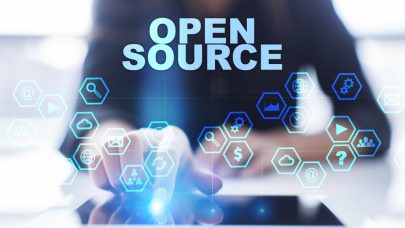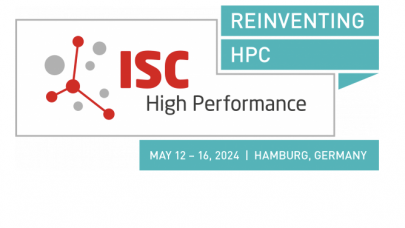Although rumors have been afoot for several weeks, Tuesday brought the official word that privately-held Platform Computing was the next acquisition for a software company-hungry IBM.
 IBM is not just eyeing companies that come flavored with cloud-geared code. Platform’s MapReduce product, cluster management suite, and tools for technical computing users make it the total package to meet IBM’s increasing emphasis on the keywords cloud, big data and technical computing.
IBM is not just eyeing companies that come flavored with cloud-geared code. Platform’s MapReduce product, cluster management suite, and tools for technical computing users make it the total package to meet IBM’s increasing emphasis on the keywords cloud, big data and technical computing.
According to IBM’s media relations maven, Tracy Sullivan, “Cloud computing is one of four major IBM growth plays (which also include Smarter Planet, business analytics and emerging markets) and we have forecasted over $7 billion in revenue by 2015.” Sullivan says that Platform’s software is a core element in many enterprise environments and that new technology that will be announced this week will extend cloud services for enterprise customers on security, portability and management fronts.
Like IBM, however, Platform sees clouds as part of a natural evolution in IT versus a revolutionary concept that stands alone, at least in terms of its role in HPC. As Platform’s CEO Songnian Zhou described in the interview below, clouds are a transition from previous movements and while they require a specialized approach given the unique set of concerns, the goal is to open HPC to new users by making high performance computing access and use manageable and seamless. In many ways, he echoed these same ideas today—as IBM stressed the role of clouds in the bigger technical computing picture.
While a great deal of today’s press teleconference hinged on the role of managing private and hybrid cloud building, IBM officials were careful to note that this acquisition goes far beyond cloud. The key takeaway they say is to understand IBM can leverage Platform’s deep reach into HPC markets (which now means cloud or big data for some users) and further their cloudy and data-intensive computing capabilities, and client base.
Platform claims more than 2,000 customers, including what they cite as “23 of the top 30 largest global enterprises.” With names like Citigroup, Harvard Medical School and the University of Tokyo under their belt, it is not difficult to see why IBM would eye the Toronto-based company for acquisition of some valuable proprietary code—not to mention the equally important litany of major enterprise customers. While the transition is expected to be seamless without great immediate changes, the interesting part here will be the software integration decisions and the way this inks in new entries to IBM’s technical computing black book.
IBM already has a number of products that seem to overlap to some extent with the addition of Platform’s offerings to the mix (Tivoli suite, xCAT, and the ilk) but there are a number of new additions on the cloud and grid management side that will round out IBM’s distributed computing portfolio, including Platform ISF. In general, the software itself might not be quite as important as the fact that it’s software Platform has fine tuned over the course of years (and through a number of major transitions from clusters, grids and now clouds) just for the performance conscious.

In other words, the HPC focus fits in better with IBM’s stated goals than the specific software packages themselves. Throw big data and cloud into that HPC-flavored mix and it makes a stew that IBM wants to serve to a technical computing market it expects will boom in the next few years. For instance, reaching out to the performance-obsessed financial services industry might now be within closer reach for IBM since many financial institutions have been long-term Platform customers. With its existing product set pre-acquisition, nabbing this finicky set of customers might have been much more of a stretch.
Factor in effective grid management (financial services is one industry that still makes serious use of grid computing) and the ability to create distributed resources or private clouds, and it’s not hard to see the real value proposition from IBM’s view. This goes far beyond basic business analytics and ushers in a potentially hugely lucrative new customer base with top-performing systems and high performance private and hybrid enterprise and research clouds.
Although financial details about the acquisition, which should close at the end of this year, were not disclosed, one can guess that IBM forked over a significant sum. Platform has been operationally profitable since its inception nearly 20 years ago and marks a potentially lucrative opportunity for IBM to bring in technical computing customers it might not have been able to reel in with its current set of enterprise-geared offerings.
Speaking of Platform’s history, it’s worth noting that the company was, in every sense of the word, bootstrapped—lending a bit more weight to the relevance of its consistent profitability. On that note, for the curious, there is another, more detailed interview with Platform’s CEO, Songnian Zhou that describes the impetus, inception and evolution of the company over the years—and how it has changed to meet the needs of clusters, grids, clouds—and now some rather interesting combinations of all three.
During the 2010 interview with Zhou, a point emerged that reflected sentiments expressed from IBM about the mainstreaming of HPC into new markets—and the need to find tools that can scale and adapt to these demands. Like IBM, which wants to reach more users that are using HPC without necessarily calling it that, Platform’s approach was to make HPC easier, a key goal of IBM’s technical computing push, especially as far its private cloud approach goes.
As Zhou said last year, “Unlike in enterprise where cloud becomes a key point to make a change, HPC has accomplished a lot of the same thing without it. On the other hand, cloud is highly complementary and supplemental to what’s already been done in HPC because it provides greater flexibility of resources and the opportunity of not having to own the resources to get the resources. This gives a lot of technologies and business advantage and has the potential to make HPC easier to use and more cost-effective, thus we will see more widespread use of HPC without the user even knowing it is HPC.”

























































